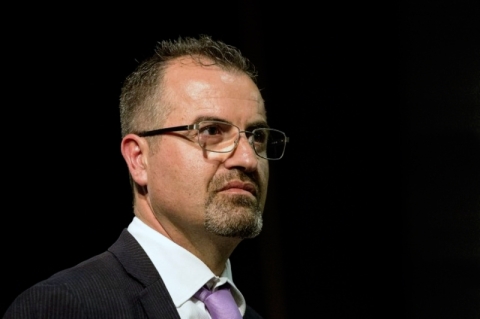Business
Dullness is (lack of) tact.
customs duties

customs duties (Source: Roberto Magni Daniela Comi By ReD Magazine)
USPA NEWS -
After a long and in-depth conversation with Ferdinando Lettieri, we can summarize his reflections on customs duties, highlighting key aspects and economic implications. Lettieri explained how tariffs function, illustrating that these tools, designed to protect national economies, can lead to complex and sometimes counterproductive consequences. A year after Daniel Kahneman's passing, the world continues to ignore his valuable lessons on human irrationality. The Nobel-winning psychologist in economics demonstrated that every choice, even the seemingly most rational ones, is often driven by emotions, cognitive biases, and mental shortcuts. Yet today, these errors seem not only to persist but to dominate political, economic, and social decisions globally.
Global Leaders and the Illusion of Certainty
Heads of state continue to fall prey to the illusion of certainty, convinced they have absolute control over geopolitical and financial dynamics. Overconfidence—the excessive belief in one's judgment—has taken root in the halls of power, pushing governments to make hasty and often counterproductive decisions. Tariffs, sanctions, and duties are imposed as if they were tools of dominance, without considering the reactions of other players on the global chessboard. The belief that a trade barrier can force an adversary to concede or that a punitive measure can push a country to change course is widespread. However, this view ignores a fundamental reality: in an interconnected system, responses are never unilateral. If a nation imposes tariffs, it often faces reciprocal measures. If a government seeks to isolate a competitor, it risks losing allies and markets.
Heads of state continue to fall prey to the illusion of certainty, convinced they have absolute control over geopolitical and financial dynamics. Overconfidence—the excessive belief in one's judgment—has taken root in the halls of power, pushing governments to make hasty and often counterproductive decisions. Tariffs, sanctions, and duties are imposed as if they were tools of dominance, without considering the reactions of other players on the global chessboard. The belief that a trade barrier can force an adversary to concede or that a punitive measure can push a country to change course is widespread. However, this view ignores a fundamental reality: in an interconnected system, responses are never unilateral. If a nation imposes tariffs, it often faces reciprocal measures. If a government seeks to isolate a competitor, it risks losing allies and markets.
Irrationality Extends to Ordinary Citizens
Irrationality is not an exclusive phenomenon of the powerful. Even small investors fall victim to the same cognitive errors, reacting emotionally to market fluctuations and making reckless choices. Panicked, they sell stocks when it would be better to hold, chase after false safe havens without considering the broader context, and are influenced by alarmist media headlines. Kahneman had already predicted this, emphasizing how the framing of a problem influences decision-making more than its actual nature.
Duties and Sanctions: Economic Tools or Impulsive Acts?
Once, tariffs and sanctions were tools of economic policy, used to regulate markets and protect local industries. Today, however, they have become mere impulsive acts, lacking long-term strategic planning. They do not build but destroy; they do not protect but isolate. Often, they end up harming those who most need collaboration to prosper.
Irrationality is not an exclusive phenomenon of the powerful. Even small investors fall victim to the same cognitive errors, reacting emotionally to market fluctuations and making reckless choices. Panicked, they sell stocks when it would be better to hold, chase after false safe havens without considering the broader context, and are influenced by alarmist media headlines. Kahneman had already predicted this, emphasizing how the framing of a problem influences decision-making more than its actual nature.
Duties and Sanctions: Economic Tools or Impulsive Acts?
Once, tariffs and sanctions were tools of economic policy, used to regulate markets and protect local industries. Today, however, they have become mere impulsive acts, lacking long-term strategic planning. They do not build but destroy; they do not protect but isolate. Often, they end up harming those who most need collaboration to prosper.
A Global Economy That Looks Like a Poker Game
The current international economic scenario resembles more a poker game than a well-considered strategy. There are aggressive bets, poorly calculated bluffs, tough looks, and fragile convictions. But the real "bank" of the global economy does not forgive gambling. Reckless moves, decisions driven by emotion, and prideful maneuvers only increase risks and diminish chances of success.
The current international economic scenario resembles more a poker game than a well-considered strategy. There are aggressive bets, poorly calculated bluffs, tough looks, and fragile convictions. But the real "bank" of the global economy does not forgive gambling. Reckless moves, decisions driven by emotion, and prideful maneuvers only increase risks and diminish chances of success.
Credibility: The True Currency of the Future
In an interconnected world, credibility is the most valuable currency. A leader who loses international trust risks compromising not only their political position but also the financial stability of their country. If investors doubt the consistency and reliability of a government, who will buy its debt? If a nation's economic system is perceived as unstable, who will continue to use its currency as a benchmark? If a country displays arrogance and closedness, why should consumers prefer its products over those from more open and collaborative nations? History has repeatedly shown that the global economy punishes those who try to impose themselves with force. In the long run, markets reward trust, transparency, and adaptability in a world that is increasingly interconnected. Even an icon like the iPhone could lose ground if other companies, more respectful and collaborative, offer equally valid alternatives.
In an interconnected world, credibility is the most valuable currency. A leader who loses international trust risks compromising not only their political position but also the financial stability of their country. If investors doubt the consistency and reliability of a government, who will buy its debt? If a nation's economic system is perceived as unstable, who will continue to use its currency as a benchmark? If a country displays arrogance and closedness, why should consumers prefer its products over those from more open and collaborative nations? History has repeatedly shown that the global economy punishes those who try to impose themselves with force. In the long run, markets reward trust, transparency, and adaptability in a world that is increasingly interconnected. Even an icon like the iPhone could lose ground if other companies, more respectful and collaborative, offer equally valid alternatives.
A Warning Against Presumption
One year after Daniel Kahneman's death—and two centuries after Alessandro Manzoni's insights—the words of Fra Cristoforo come to mind: "Verrà un giorno…" ("A day will come…"). That day when presumption will have to face reality, and common sense will once again guide global decisions. As always has been, and as always will be. This reflection, more relevant than ever, reminds us that humanity cannot continue to ignore its own weaknesses. The global economy is not a gladiator arena nor a gambling table, but a delicate system requiring balance, strategy, and foresight. The future belongs to those who recognize this truth and act accordingly.
One year after Daniel Kahneman's death—and two centuries after Alessandro Manzoni's insights—the words of Fra Cristoforo come to mind: "Verrà un giorno…" ("A day will come…"). That day when presumption will have to face reality, and common sense will once again guide global decisions. As always has been, and as always will be. This reflection, more relevant than ever, reminds us that humanity cannot continue to ignore its own weaknesses. The global economy is not a gladiator arena nor a gambling table, but a delicate system requiring balance, strategy, and foresight. The future belongs to those who recognize this truth and act accordingly.
Who is Ferdinando Lettieri?
Ferdinando Lettieri is a Private Banker and financial advisor with extensive experience in the sector. Since 2000, he has been involved in financial education and consulting, mainly working in Bologna, Ferrara, and surrounding areas. He is registered with the financial advisor register and works at Fideuram, helping people plan their financial future with transparency and professionalism. From a young age, he developed a passion for financial markets, studying correlations between currencies, commodities, and investments. He has earned several certifications, including EFPA Certification and a Master in Financial Advising from the University of Siena. He also created a software called Sophia Portfolio for mathematical correlation analysis, in honor of his firstborn daughter.
https://ferdinandolettieri.com
more information: https://www.redmagazine.red
Liability for this article lies with the author, who also holds the copyright. Editorial content from USPA may be quoted on other websites as long as the quote comprises no more than 5% of the entire text, is marked as such and the source is named (via hyperlink).







